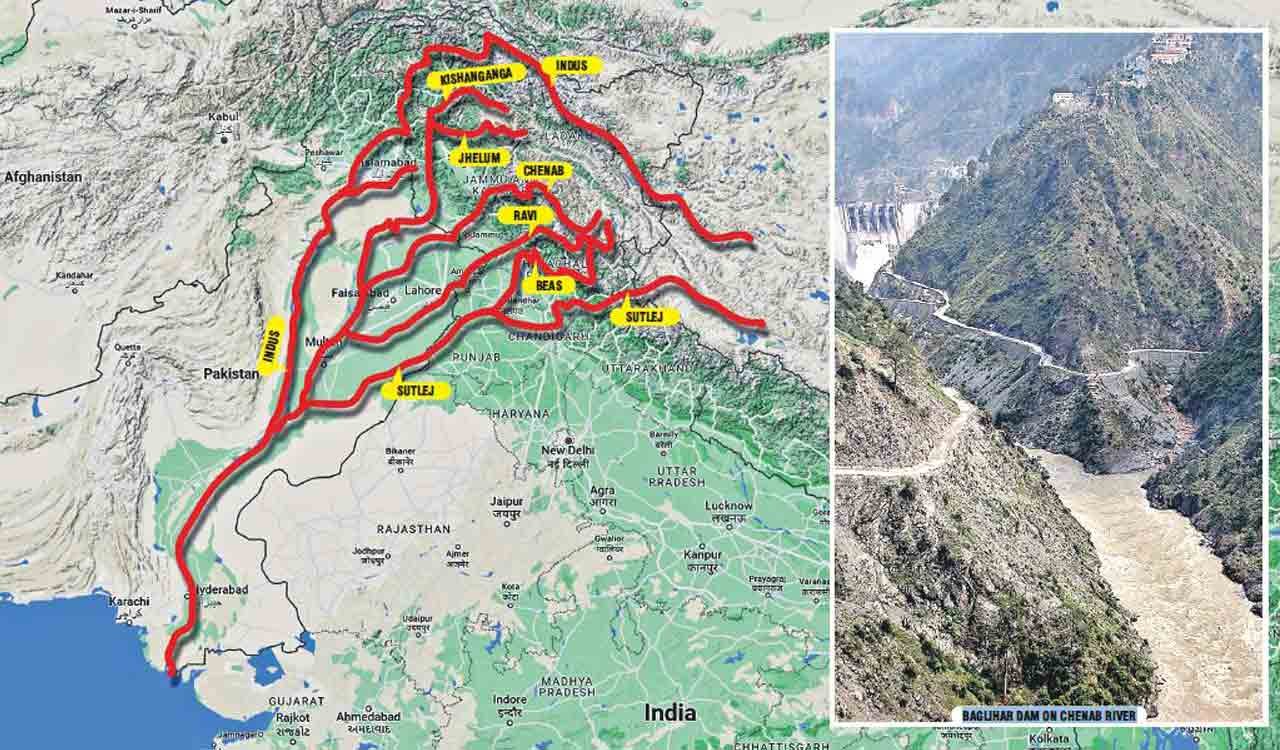
Suspension of Indus Waters Treaty and Its Domestic Utility
Introduction: Why in News?
The suspension of the Indus Waters Treaty (IWT) by India in the wake of Operation Sindoor has opened new debates on using water diplomacy as a tool for strategic and domestic advantage. This article highlights how Delhi, a significant beneficiary of the IWT, can potentially solve its water crisis by redirecting resources previously allowed to flow into Pakistan. It also sheds light on internal political and legal battles over water allocation and inter-state disputes.
This development is extremely relevant for CLAT Current Affairs 2026 and aspirants preparing for law and public policy exams, as it touches on international treaties, federal water-sharing, constitutional governance, and strategic national interest.
Point-Wise Summary for CLAT Aspirants
- Indus Waters Treaty Context:
- The IWT governs six rivers: Indus, Jhelum, Chenab (Western Rivers – for Pakistan) and Ravi, Beas, Sutlej (Eastern Rivers – for India).
- Delhi draws almost 30% of its water from eastern rivers covered under IWT.
- Operation Sindoor Impact:
- Triggered strategic reconsideration of India’s water treaty obligations.
- India suspended the IWT, prompting Pakistan to request a return to the status quo.
- Strategic Opportunity:
- India retains full control over the eastern rivers even if the suspension is reversed.
- Possibility of redirecting water to meet urban demands like in Delhi.
- Water Distribution History:
- In 1955, Punjab, PEPSU, Rajasthan, and J&K were allocated water via an internal agreement.
- After PEPSU merged with Punjab, and Haryana was carved out in 1966, disputes arose over redistribution.
- Central government allocated 0.3 BCM water to Delhi in 1976.
- Delhi’s Current Water Crisis:
- Receives water from rivers and groundwater but faces a shortfall of nearly 150 MGD.
- Upgrades like the Dwarka Water Treatment Plant (WTP) are in progress.
- Legal Framework:
- The Upper Yamuna Board Agreement (1994) regulates water sharing among basin states.
- Delhi’s water share is protected under Supreme Court directives.
- Inter-State Tensions:
- Disputes like the Sutlej-Yamuna Link (SYL) between Punjab and Haryana remain unresolved.
- Renuka, Kishau, and Lakhwar projects are delayed due to riparian disagreements.
- Potential Gains from Suspension:
- Redirecting Beas and Sutlej waters from Pakistan to India (5.9 BCM estimated) could benefit Delhi and other northern states.
- Could help address multiple inter-state and international water challenges.
Explanation of Important Terms for CLAT
Indus Waters Treaty (IWT):
A 1960 agreement brokered by the World Bank between India and Pakistan, allocating use of six rivers in the Indus basin.
Operation Sindoor:
India’s recent military and strategic operation that revived discussions on restricting water flows to Pakistan under IWT.
MGD (Million Gallons per Day):
A unit of measurement used for large-scale water supply and treatment capacity.
Cusec:
Short for cubic feet per second, a measure of flow rate for rivers and canals.
SYL Canal Dispute:
A long-pending legal and political conflict between Punjab and Haryana over canal-based water distribution.
Upper Yamuna Board:
A body regulating water distribution among basin states—Uttarakhand, Himachal Pradesh, Haryana, Delhi, Rajasthan, and Uttar Pradesh.
Strategic and Constitutional Relevance for CLAT 2026
- Federal Structure: Inter-state water disputes are managed under Article 262 and the Inter-State River Water Disputes Act, 1956.
- Environmental & Urban Governance: Right to water is part of Article 21 – Right to Life.
- International Law: Suspension of treaties involves international diplomacy and reciprocity, regulated under the Vienna Convention on the Law of Treaties.
- Public Policy: Balancing national interest and international responsibility in resource allocation.
Critical Analysis for Legal Essays
- Can national interest override treaty obligations?
- Should strategic assets like water be used as leverage in geopolitics?
- How do inter-state disputes challenge India’s cooperative federalism model?
Conclusion
The suspension of the Indus Waters Treaty offers India both a strategic and a domestic opportunity. As global water scarcity intensifies and inter-state disputes rise, such policy shifts demand careful legal, environmental, and constitutional evaluation. For CLAT aspirants, understanding how diplomacy, law, and infrastructure intersect in such landmark decisions is essential for cracking not only the GK section but also for excelling in legal reasoning and essay writing.







